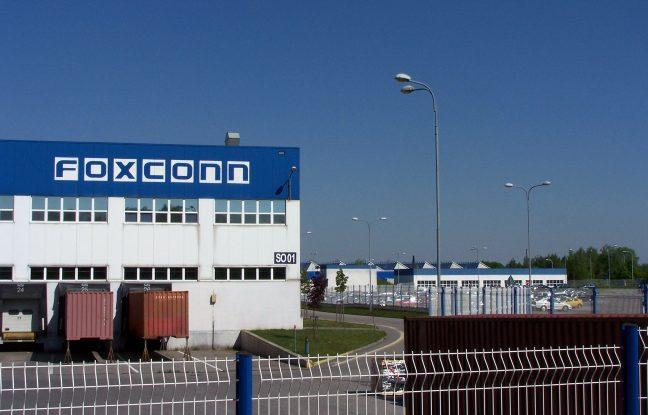Foxconn Technology Group announced the first round winners of their “Smart Cities, Smart Futures” competition, which encourages innovation and collaboration between Wisconsin institutions, Dec. 14.
The competition consists of three rounds, the first of which included a $500 cash reward to go toward improving the winning teams’ projects. Fourteen of the 88 teams passing this round and claiming the $500 are students from the University of Wisconsin.
The second round will be complete Jan. 31. Up to 50 winners will be selected from the 88 remaining, and the third round — from March 1-March 31 — will decide the winners of a $5,000 grant called the “President’s Award.”
PhD candidate Michael Schlicting studies transportation administration and community development. His project proposed a smart, centralized transportation hub centered around a rail station in Mount Pleasant, the city in which Foxconn is building its Wisconsin plant. Upon advancing through the first round of the competition with his team, he expressed excitement and some surprise.
“I think they were looking more for smart devices,” Schlicting said. “We didn’t think they were going to like the idea. We imagined they expected a little gadget or some phone app. And here we were, saying that we want to build a whole rail station, as well as a high-speed rail or a hyperloop. So when the email came in, I got really excited.”
Schlicting’s project proposed turning Mount Pleasant into a smart city. That would involve building a high-speed rail station, geographically feasible given the city lies about one and a half miles off the Milwaukee to Chicago route, which Schliting says is a potential high-speed rail route.
His team traveled around the world studying smart cities — Schlicting spent a summer in Japan — and they used some of the environments they visited as inspiration for their project. Then, they partnered with the Badger Rail Society and BadgerLoop, two UW institutions, to develop their ideas.
“When we saw the Smart Cities competition, we said ‘let’s build a smart city in Mount Pleasant, using what we already researched.’ It’s a new project, but the research is already done,” Schlicting said.
Foxconn invests $100 million in UW research, announces partnership
While Schlicting’s team devised a system for connecting large groups of people, other projects focused on helping individuals retain their independence.
Biomedical engineering PhD candidate Terry Lee proposed an emergency transport AI system to provide care to individuals hampered by health conditions. If the system detects a weakening heartbeat or vital signals, it sends a signal to an AI, which can help deliver care.
“Even in urbanization … people want independent living,” Lee said.
The Smart Futures competition was open to Wisconsin college students, faculty and staff of all levels and experiences, and while many of the winners were graduates or professionals, some were undergraduate students as well. One was electrical engineering senior Yuchen Gu.
Gu’s project uses RFID tags, or Radio-Frequency Identification tags, which can track the location of an object or person. He designed smart technology that can alert traffic of potential accidents with bikes or pedestrians using warning lights, or signals sent to cars. He worked closely with the electrical engineering department, as well as the civil engineering department to develop his project.
“If you really want to do something that can change someone’s life, you really have to think about it, make it work,” Gu said.
When Gu heard that he’d made it through, he said he wasn’t actually that excited. He was confident in his project — his design had won a competition done by Triple E, an electrical engineering society he’s a part of.
Schlicting said competitions like this are important because they present an exciting opportunity to bring people together, within and between departments and organizations.
“A competition will bring everyone together, but with a sense of urgency … it focuses the energy,” Schlicting said. “Our team motto is ‘go faster.’”
Amid protests, Foxconn deal finalized in closed session meeting
University spokesperson Meredith McGlone issued a statement examining the intersection of the competition and the Wisconsin Idea.
The Wisconsin Idea, a UW philosophy beginning with former President Charles Van Hise’s address encouraging academic outreach, emphasizes the importance of using the knowledge students gain from their classes and experiences at UW for positive change across the state.
“The great thing about the Wisconsin Idea is that it encourages us to think not only about innovation but about how we can use what we learn and develop to help others, whether here in Wisconsin or around the world,” McGlone said in a statement. “That’s really powerful and we want to congratulate all of our first-round winners.”













